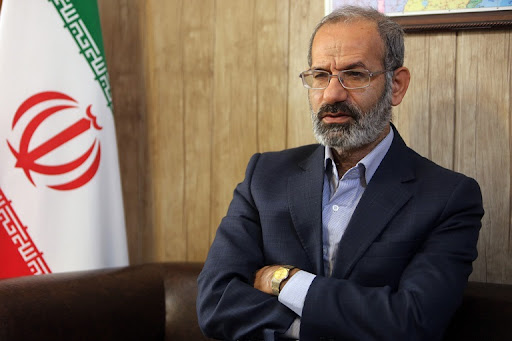Alwaght- Over the past two decades, the United States, Turkey, and the Zionist regime have faced ultimate defeat in any sedition that they incited and gotten out of the situation, while fraught with humiliation.
The fact of the matter is that if there is no more time for preventing a conspiracy from taking shape, there is still time to thwart the conspiracy that has formed. Here are some points with regards to this issue:
1) What the US, the Zionist regime, the governments of Turkey and Azerbaijan, and the West in general, are pursuing in the regions north of Iran is, firstly, a reaction to the great achievements of the Islamic Republic and the resistance front.
When the criminal Zionist regime refers to the Republic of Azerbaijan as “Lebanon of Israel,” it means that there is a “Lebanon of resistance” that has foiled any Israeli conspiracy over the past forty years and turned into a major crisis for the occupying regime.
Why is a front led by the US, Zionist regime, Turkey and Azerbaijan talking about launching a pan-Turan movement here? Because a powerful religious movement has for more than 40 years disrupted the plots of colonialists and criminals. So, it is quite clear that the enemy, although very hardworking, is in a state of “passivity.”
Here is another important question: will this evil conspiracy ever yield result? The answer is that there is a serious antidote to prevent the realization of this tension-making scheme, and if it enters the scene, it will definitely thwart the plan, as it has happened so far.
2) Some people make a mistake here and say that the Syunik agreement with North Karabakh is a matter that concerns the governments of Azerbaijan and Armenia and that Iran’s objection to it is not a matter of concern. They argue that the implementation of the agreement is to the detriment of Iran’s regional situation, but it is a natural consequence and thus does not create a right for Iran to legitimize its opposition.
The answer is clear; This is not an agreement between the two countries on a disputed region, but one on creating a region meant to undermine the security, political and economic position of a third country.
While acknowledging their military and political failure in Afghanistan, the Americans explicitly speak of pursuing a proxy war model to make up for their defeat. Shortly afterwards, it becomes known that they had sent a signal to Azerbaijan to launch and attack and a signal to Armenia to, in turn, show tolerance and accept the post-war reality, and at the same time, following the end of the recent 44-day Karabakh war, the Americans said that they support the agreements reached between Azerbaijan and Armenia. All these suggest that the Americans have been standing behind this war and the situation that ensued.
Simultaneously, the Azerbaijani government announced the widespread use of Israeli attack drones in the war, and the Armenian army called the UAVs the main reason for its heavy casualties in the war. This means that it was an American-Israeli war.
Everyone knows that the administration of Armenian Prime Minister Nikol Pashinyan is a Christian government dependent on the West, but it is interesting that in this war, the United States and Israel destroyed the forces and facilities belonging to a pro-West Christian administration and supported a Muslim government instead! Isn’t that a telltale sign?
The question is what kind of “proxy war” US officials were talking about in the course of their withdrawal from Afghanistan? Was it possible for the United States to start such a war in Afghanistan? Which forces could be used by the US to launch a proxy war in Afghanistan? Could the US bring the Taliban, which was taking power, into a proxy war? Proxy war with whom? The answer is no.
Was the Afghan army able to enter a proxy war? The answer is clear. Was the army that was not even able to defend Kabul for an hour against the Taliban — which took control of the capital without firing a single shot — ready to enter a proxy war? Could the old mujahedeen forces serve as the proxies of the American war? The answer is clear. The old forces, besides having an anti-American spirit, have currently no military capability. Could the United States create a proxy force in Afghanistan in the medium term, with the Taliban and etc. present on the scene? The answer to this question is also no. This is because for at least the next 50 years, American crimes will be in front of the eyes of the Afghan people, and the prospect for any kind of Afghan-American cooperation is bleak.
So, what did the Americans mean by a proxy war? In fact, the Americans wanted a proxy war where there was a fertile ground and the required strength. From the American point of view, the “ethnicity” factor must be emphasized and turned into a winning weapon against anti-American revolutionary uprisings. The Americans have long focused on the model of racism and pan-Turanism, in the case of this region, and considered them as “a possible solution,” or more accurately, the last “remaining arrow,” and pinned their hopes on it.
Therefore, the prominent role of this tendency in the developments in the north and its overlapping in the Caucasus, besides the intention to highlight the anti-Iranian and anti-Islamic edges in the rhetoric of the officials of these countries, tell us that we are facing a “semi-hard” proxy war.
When Azeri President Ilham Aliyev speaks openly in an interview about the widespread presence of Israeli forces and equipment in the Caucasus and the resolution of the Nagorno-Karabakh crisis, he is in fact blowing the lid off a proxy war.
3) Saudi Arabia’s measures are yet another issue that is indicative of the proxy war in the developments unfolding in Iran’s northwestern frontiers, on the one side, and its scale, on the other. The Saudis have explicitly said that they are working to launch a 24-hour television network for the Turkish region of the Caucasus called “Turk national.” Why is the Saudi regime in the Caucasus trying to launch such a TV network? The people in this region are neither Arabs nor Sunnis in order for them to be the audience of a Sunni Arab country. At the same time, it is obvious that this decision cannot be implemented without the consent and cooperation of the governments in the region.
4) Naturally, on this front, Iran cannot remain silent and turn a blind eye to the dimensions and consequences of the action that being along its borders; therefore, it has to react, but what is the due reaction? There is no doubt that military conflict and dragging Iran into the military arena is a well-known policy of the American front. On the other hand, we know that what is intended for the Caucasus region is not even a full-fledged military war, let alone a regional and multilateral war. We are thus not talking about a war in the sense that it is perceived. We are talking about actions that disturb the peace of this region and the interests of the powers around it.
Isn’t it true that the Azerbaijani government says Israeli drones and forces had been involved in the recent war between the Republic of Azerbaijan and the Republic of Armenia? Isn’t it true that the Israelis explicitly referred to the Republic of Azerbaijan as “Lebanon of Israel”? Since there are talks about the formation of a definite security threat against the Islamic Republic, Iran has the right to dismantle and confront the center of conspiracy against itself without coordination with any place or individual. This type of Iranian confrontation is not so incomprehensible to the Zionists. Interestingly, an Israeli institution wrote a few days ago: “Iran may want to retaliate against Israeli attacks in Syria in Azerbaijan.” The regime is attacking areas in Syria under the false pretext that Syria has become a base for the presence of Iranian military personnel. The Israeli institute asks what problem would arise if Iran attacked a base in Azerbaijan, where Israeli force are possibly present?
Of course, Iran knows very well how to use the developments to the detriment of its enemies. The Islamic Republic will naturally begin with negotiations to fraternally resolve the issue between neighbors on Iran’s northwestern border. Over the past two decades, the United States, Turkey, and the Zionist regime have faced ultimate defeat in any sedition that they incited and gotten out of the situation, while fraught with humiliation. They are inciting sedition while they do not have the power to tolerate and manage the war. If these acts of sedition are not put aside, they will face defeat thanks to Iran’s measures.
Source: Press TV
By Sa’dollah Zarei



























